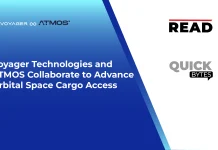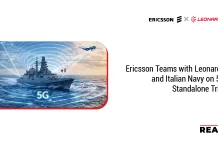Darktrace CEO Poppy Gustafsson spoke on Wednesday night at the Royal United Services Institute (RUSI) on the evolving cyber threat landscape in the context of Russia’s invasion of Ukraine. She was in conversation with Professor Madeline Carr, Senior RUSI Associate Fellow and Professor of Global Politics and Cybersecurity at University College London.
Also Read: Manu Heirbaut Joins Datadobi as Company’s Vice President of Engineering
Commenting on the challenge of policing both cyber warfare and international cyber crime, Gustafsson said “There remains a persistent lack of clarity around how we define an act of war in the cyber-sphere.” She called for the creation of a dedicated international cyber task force, or ‘tech NATO’, to deliver international collaboration in agreeing and ratifying a set of cyber-norms and accountability.
Gustafsson noted that Russia’s invasion of Ukraine is the first time an active invasion has been supported by the tactical dismantling of national infrastructure using cyber-attacks. “The attack on the Viasat satellite that disabled Ukrainian military communications one hour before the invasion was a key component of the beginning of this war,” argued Gustafsson. She added, “We have seen UK, US and EU officials jointly attribute this attack to Russia, an immensely political act. That is unprecedented.”
Asked by Prof. Carr whether Darktrace has seen the level of collateral cyber disruption it expected, Gustafsson shared that Darktrace data showed a global increase in attacks on critical national infrastructure bodies across its customer base, including a 90% increase in high priority security incidents on the networks of energy companies in Europe during the week of the invasion, from February 24th.
At the domestic level, Gustafsson called for cooperation and accountability between the public and private sectors, as well as lower tolerance for cyber attacks. She emphasized the importance of a “whole of society approach” to cyber security adding: “There is a shocking tolerance for cyber attacks, and that has to change. Organisations that are custodians of valuable, private data can not be allowed to let that data fall into criminal hands through negligence and face no consequences.”
“Issues that we had thought about speculatively have now become our reality. We are facing war in Europe and there is an essential cyber component both to the way it is being fought, and to its international ramifications,” remarked Prof. Madeline Carr. “This is a complex area which is the subject of a wealth of academic debate, and what is needed is clarity, consensus and cooperation. That is why it has never been more important to bring expert voices from across the public and private sector together as we have done this evening.”




